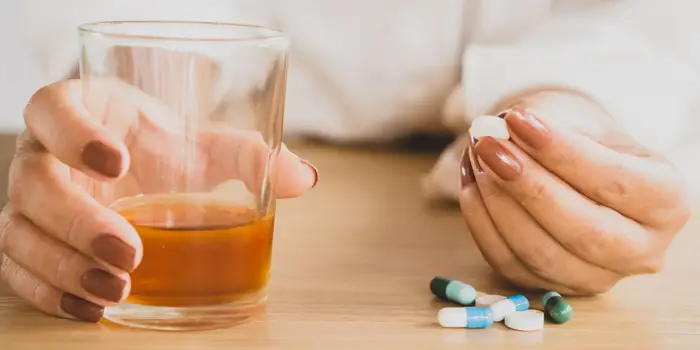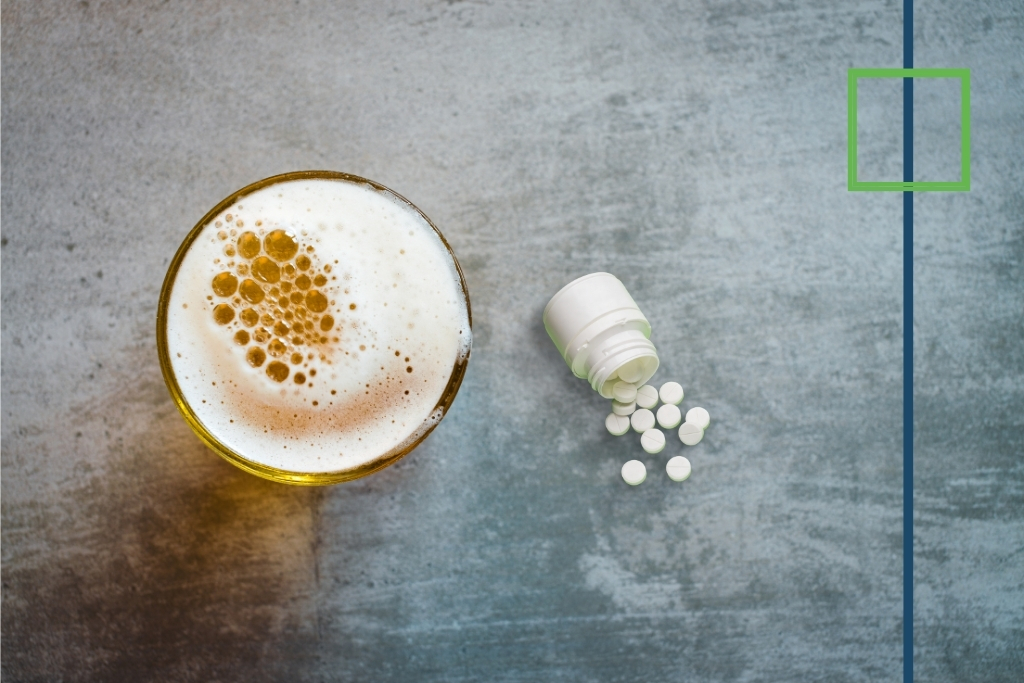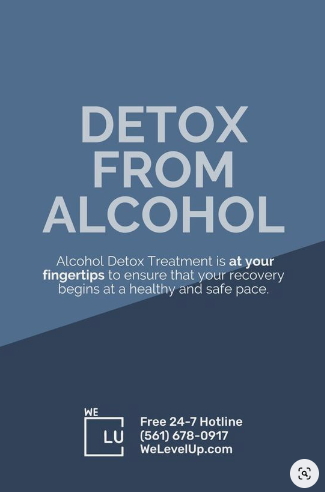What is Ativan?
Ativan (Lorazepam) is a drug that calms the central nervous system (CNS) to soothe feelings of anxiety. This drug enhances the effects of a specific natural chemical in the body (GABA). Lozarpam is the most potent Benzodiazepine and carries a substantial addiction risk. Unfortunately, Ativan is a prescribed drug taken orally capable of causing addiction, especially in those with a history of other mental disorders. Users can quickly develop tolerance and dependence and soon struggle with Ativan addiction. Mixing Ativan and alcohol also profoundly affects one’s brain and body. Learn more here.
Despite its legitimate medical uses, Ativan has known addictive and dependence liabilities. This is one reason why Ativan is prescribed for relatively short-term use. However, people should be careful to adhere to prescription guidelines. If not, if an individual exceeds the recommended dosage, it may increase the likelihood of addiction development.
Because Lorazepam has a high potency, it can end in more extreme cravings when discontinued. These intense cravings may result in individuals using more Ativan than prescribed, using Ativan for more extended periods than needed, and attempting to get Ativan from other doctors (doctor shopping) or other individuals. This can result in critical abuse and addiction.
According to the US Food and Drugs Administration (FDA) [1], benzodiazepines, including Lorazepam or Ativan, may lead to physical and psychological dependence. The risk of dependence increases with higher doses and longer-term use and is further increased in persons with a history of alcoholism or drug abuse or in persons with significant personality disorders.
Skip To:
- What is Ativan?
- How Does Ativan Affect You?
- What Happens If You Take Ativan and Drink Alcohol?
- Ativan and Alcohol Experience
- Ativan and Alcohol Reactions
- Ativan and Alcohol Effects
- Signs of Ativan Abuse
- Ativan and Alcohol Death
- How Much Ativan and Alcohol Will Kill You?
- Ativan and Alcohol Hangover
- Alcoholism Treatment
Learn More:

How Does Ativan Affect You?
Ativan functions by increasing the amount of dopamine in the brain. Dopamine is responsible for regulating mood swings, anxiety attacks, and restlessness, among other things. Research has shown that Ativan works by increasing dopamine levels in the brain, which then increases the amount of serotonin. This, in turn, reduces the amount of restlessness and anxiety. Ativan can also increase the number of GABA (gamma-aminobutyric acid), another chemical in the brain crucial for controlling mood.
Many different chemicals cause changes in the liver, including one called CYP2E1, which causes a huge increase in the liver’s activity. Alcohol and Ativan combo can greatly increase this chemical’s production. This is one of the main reasons you tend to feel so sluggish after drinking alcohol; taking both Ativan and alcohol simultaneously will only worsen the hangover.
Ativan’s Effects on the Body
By slowing the activity of the brain and nerves, Ativan affects physical functions and responses. As a tranquilizer, Ativan can make the user feel calm and physically relaxed. When taken correctly, Ativan can also stop painful muscle spasms or prevent life-threatening seizures. This medication is generally safe and effective for patients who take Ativan as directed for legitimate reasons. However, all users must watch out for potential adverse reactions to the drug, such as:
- Daytime sleepiness
- Low energy levels
- Confusion
- Poor muscle coordination
- Blurry vision
- Loss of balance
- Blood in stool or urine
- Stomach pain
- Weight loss
- Chills
- Pale, cool skin
- Involuntary movements (tremors, shaking)
Ativan’s Effects on the Mind
Ativan can have powerful effects on the brain and nerves. However, many users experience “rebound” side effects or worsen the same symptoms that the drug is designed to treat. In particular, Ativan can cause rebound anxiety, sleep disturbances, abnormal body movements, and agitation.
- Rebound anxiety
- Restlessness
- Loss of pleasure in day-to-day experiences
- Depression
- Memory problem
- Learning difficulties
The chemical structure of lorazepam is intended to reduce the excitability of the brain and nerves while soothing emotional responses that create anxiety and restlessness. On the negative side, Ativan can flatten users’ emotional responses and blunt their experiences of the world. As a result, individuals taking Ativan may lose interest in their everyday experiences or responsibilities. As a result, they may feel constantly sluggish and tired and have a dazed, exhausted appearance.

Get Your Life Back
Find Hope & Recovery. Get Safe Comfortable Detox, Addiction Rehab & Mental Health Dual Diagnosis High-Quality Care at the We Level Up Treatment Centers Network.
Hotline (877) 378-4154What Happens If You Take Ativan and Drink Alcohol?
Ativan and alcohol are both central nervous system (CNS) depressants that cause an increase in GABA (gamma-aminobutyric acid) in the brain. Combining both alcohol and Ativan can slow down the brain’s functioning and make it much easier to overdose.
Because of its many benefits in treating mental disorders, Ativan has become widely used as one of the go-to panic disorder treatments. This is even though Ativan is a highly addictive drug. Taking it regularly causes several adverse side effects, including sleep loss, memory loss, increased aggression, and heart palpitations.
What are the side effects of ativan and alcohol? When taking Ativan and alcohol, one must know that alcohol works as a diuretic. That means that when people drink, especially excess, it flushes out the body of excess fluids, especially when the amount of alcohol consumed exceeds the recommended daily allowance.

Ativan and Alcohol Experience
You should avoid drinking while taking Ativan. Mixing alcohol and Ativan can cause the Ativan to have increased and potentially life-threatening side effects. For example, the risk for serious side effects like slowed breathing rises if a person has been drinking while taking Ativan. In addition, mixing Ativan with alcohol can also impact cognitive abilities in people who drink chronically.
You should avoid drinking while taking Ativan. Mixing alcohol and Ativan can cause the Ativan to have increased and potentially life-threatening side effects. For example, the risk for serious side effects like slowed breathing rises if a person has been drinking while taking Ativan. In addition, mixing Ativan with alcohol can also impact cognitive abilities in people who drink chronically.
Ativan is a Schedule IV controlled substance, and its use can lead to dependence and abuse. Though most benzodiazepines, such as Ativan, can be abused independently, they are often abused with other substances, such as alcohol and opioids. For example, in studies, 3% to 41% of alcoholics state that they abuse benzodiazepines to heighten the effects of alcohol or lessen the effects of withdrawal.
Ativan and Alcohol Reactions
Can you mix ativan and alcohol? Taking alcohol with benzos may cause alcohol’s depressant qualities to work faster because both substances are downers. Because both drugs slow down your central nervous system, taking benzos with alcohol makes it easier to go into cardiac or respiratory arrest. The risk of alcohol poisoning also increases with this mixture, especially if taking an extended-release version of benzodiazepines.
Ativan and alcohol interactions may cause alcohol’s depressant qualities to work quickly because both substances are downers. Because both alcohol and Ativan slow down your central nervous system (CNS), taking Ativan and alcohol combo makes it easier to go into respiratory or cardiac arrest. The risk of alcohol poisoning also increases.
First-class Facilities & Amenities
World-class High-Quality Addiction & Mental Health Rehabilitation Treatment
Rehab Centers TourRenowned Addiction Centers. Serene Private Facilities. Inpatient rehab programs vary.
Addiction Helpline (877) 378-4154Proven recovery success experience, backed by a Team w/ History of:
15+
Years of Unified Experience
100s
5-Star Reviews Across Our Centers
10K
Recovery Success Stories Across Our Network
- Low Patient to Therapist Ratio
- Onsite Medical Detox Center
- Comprehensive Dual-Diagnosis Treatment
- Complimentary Family & Alumni Programs
- Coaching, Recovery & Personal Development Events

ativan and alcohol effects
Can you drink alcohol while on Ativan? No, it would be best if you did not consume alcohol while on Ativan or other benzos. Your doctor will warn you against mixing these two substances. No amount of alcohol is safe to drink while using Ativan.
How long after taking Ativan can you drink? The half-life of Ativan is twelve hours. Half-life is the amount of time it takes for the body to eliminate half of the drugs. Drugs are eliminated in five half-lives, so Ativan will not be removed until 60 hours after the last dose. Therefore, you should wait at least three days after your last dose of Ativan to drink alcohol.
What are the effects of mixing Ativan and alcohol? Both alcohol and Ativan can cause “blackouts” or long periods where you have no memory. Mixing alcohol and Ativan can cause minutes or hours where you black out and have no memory of events. You are at a very high risk of accidental injury and death during this time.
Alcohol and ativan together can slow the heart. As a result, the body may experience bradycardia or hypotension. Hypotension is when there is insufficient pressure in your blood vessels to provide oxygen to the body. Bradycardia is when the heart is not beating fast enough, putting organs at risk of decreased oxygen.
Signs of Ativan Abuse
Generally speaking, about one-third of people who take benzodiazepines for longer than four weeks will develop a dependence on them. This number is likely higher in the case of lorazepam (Ativan). Ativan is widely used recreationally worldwide because of the pleasurable “high“ it produces in the user. Unfortunately, it is also used in many criminal activities, including rape and robbery.
- Despite initial intentions, the person takes too much Ativan or takes it for a more extended period of time than expected.
- There is a persistent desire or unsuccessful effort to cut down or control the use of Ativan.
- The person spends a disproportionate amount of time using Ativan, getting Ativan, or recovering after using Ativan.
- The person has cravings to use Ativan. Due to Ativan abuse, the person cannot perform to the necessary standard at work, school, or home.
- Users continue to use the drug even though doing so is causing interpersonal problems.
- Users don’t partake in essential work activities, hobbies, or social events due to the Ativan abuse.
- The person repeatedly uses Ativan even when doing so puts them in danger or at risk for a host of troubles such as drugged driving.
- The person continues to use Ativan even though it is causing psychological or physical problems.
- Users develop a tolerance for Ativan. Tolerance is a natural process that requires a person to take more of a drug as time passes.
- The person goes into withdrawal. Withdrawal is a natural process that occurs when a person stops using the drug or reduces the familiar amount of the drug used.
Ativan and Alcohol Death
Overdosing on Lorazepam/Ativan can be deadly and requires emergency medical attention.
Signs of an overdose on Lorazepam and alcohol include:
- Difficulty breathing
- Extreme drowsiness
- Vomiting
- Slowed heart rate
- Clammy hands
- Seizures
- Loss of consciousness
One of the most dangerous things about an alcohol/Ativan overdose is that one of the main signals – loss of consciousness – is something most people already associate with alcohol in a less serious sense. People around the person who has overdosed may think that he or she is simply “sleeping it off” when in reality, they may be slipping into a coma or close to death.
World-class, Accredited, 5-Star Reviewed, Effective Addiction & Mental Health Programs. Complete Behavioral Health Inpatient Rehab, Detox plus Co-occuring Disorders Therapy.
CALL (877) 378-4154End the Addiction Pain. End the Emotional Rollercoaster. Get Your Life Back. Start Drug, Alcohol & Dual Diagnosis Mental Health Treatment Now. Get Free No-obligation Guidance by Substance Abuse Specialists Who Understand Addiction & Mental Health Recovery & Know How to Help.

How Much Ativan and Alcohol Will Kill You?
What is the lethal dose of Ativan? There is no conclusive research on the lethal dose of Ativan. A normal dose of Ativan is between 2 to 6 milligrams (mg). Most doses for treating anxiety disorders are about 2 to 3 mg. If a person takes significantly more than the recommended dose, it’s possible that an overdose will occur, but death is unlikely.
Though Ativan is safe when prescribed doses, it may result in an overdose when taken in excess, benzodiazepines like Ativan can be lethal when mixed with other central nervous system depressants, such as opioids or alcohol. The best way not to overdose is to avoid using the drug. If that’s not possible, following your doctor’s orders and avoiding Ativan and alcohol or other depressants is a good start. When a person abuses both substances simultaneously, they may be at higher risk of severe intoxication and overdose.
Ativan and Alcohol Hangover
Taking Ativan for alcohol hangover symptoms would technically be considered prescription drug abuse since that isn’t what it’s prescribed for. It is an all-around bad idea. If you struggle with “hangxiety”, a combination of the terms “hangover” and “anxiety, counseling may be the most effective strategy to reduce the symptoms.
The co-occurrence of alcohol and anxiety disorders is relatively common. Alcohol abuse and anxiety often make each other significantly worse. This is especially problematic as the two are often closely linked. Anxiety disorder makes an individual start drinking alcohol, which worsens their anxiety, which leads them to drink more and worsens their anxiety further. It’s a never-ending vicious cycle of alcohol and anxiety.
Experience Transformative Recovery at the We Level Up Treatment Center.
See our authentic success stories. Get inspired. Get the help you deserve.



Start a New Life
Begin with a free call to an addiction & behavioral health treatment advisor. Learn more about our dual-diagnosis programs. The We Level Up treatment center network delivers various recovery programs at each treatment facility. Call to learn more.
- Personalized Care
- Caring Accountable Staff
- World-class Amenities
- Licensed & Accredited
- Renowned w/ 5-Star Reviews
We’ll Call You
Alcoholism Treatment
First and foremost, if you think a loved one is abusing Ativan and alcohol, you should research the drug and its associated addiction to understand better what your loved one needs. Next, you must plan an intervention to provide your loved ones with options to battle the effects of Ativan and alcohol abuse in a safe and supportive environment. During this intervention, offer compassion and support instead of judgment. Lastly, show your support throughout the entire treatment process.
In addition, prolonged drug use can have severe physical and psychological effects on you, so it is essential to seek treatment as soon as possible. Inpatient drug rehab offers intensive care that can help you promptly get through the early stages of alcohol withdrawal.
Ativan and Alcohol Detox Treatment
Ativan and alcohol detox is the process of weaning someone off of a dependency to a substance. It allows members of rehab centers like We Level Up NJ to recover safely and comfortably. While an uncomfortable withdrawal from alcohol is unavoidable, it doesn’t have to be unbearable.
Medical detox is often considered the first stage of treatment. It will help you navigate the complicated ativan and alcohol withdrawal from alcohol and Ativan but doesn’t address patterns of thought and behavior contributing to drug use. Various treatment approaches and settings can help provide the ongoing support necessary to maintain long-term sobriety after you complete the ativan and alcohol detox.
Cravings are very common during ativan and alcohol detox and can be challenging to overcome. This often leads to relapse. Constant medical care provided during inpatient treatment helps prevent relapse. Clinicians can give the necessary medication and medical expertise to lessen cravings and ativan and alcohol withdrawal symptoms.
Inpatient Alcohol and Ativan Rehab
There isn’t one treatment approach or style that will suit everyone. Treatment should speak to the needs of the individual. Inpatient rehab and addiction treatment aren’t just about drug use. the goal is to help the patient stop using alcohol and other substances, but alcohol rehab should also focus on the whole person’s needs.
Addiction is a complex but treatable disease that affects brain function and behavior. When someone or their family is considering different treatment facilities, they should account for the complexity of addiction and the needs of the individual. The objective of attending an inpatient rehab center for addiction treatment is to stop using the drug and re-learn how to live a productive life without it.
Following a full medical detox, most people benefit from inpatient rehab. Inpatient drug rehab can last anywhere from 28 days to several months. Patients stay overnight in the rehab facility and participate in intensive treatment programs and therapy. Once someone completes rehab, their addiction treatment team will create an aftercare plan, which may include continuing therapy and participation in a 12-step program like Narcotics Anonymous.
Psychotherapy
Many rehab programs will also have early morning classes or programs. Group sessions occur during inpatient rehab, as do individual therapy sessions. Family therapy may be part of inpatient rehab when it’s feasible. Alternative forms of therapy may be introduced during inpatient rehab, like a holistic therapy program, yoga for addiction recovery, or an addiction treatment massage therapy.
Several different modalities of psychotherapy have been used in the treatment of mental health disorders along with addiction, including:
- Cognitive Behavioral Therapy (CBT) – is an effective treatment that involves changing both the patterns of negative thoughts and the behavioral routines which are affecting the daily life of the depressed person for various forms of depression.
- Dialectical Behavioral Therapy – is a comprehensive mental health and substance abuse treatment program whose ultimate goal is to aid patients in their efforts to build a life worth living. The main goal of DBT is to help a person develop what is referred to as a “clear mind.”
- Solution-focused therapy is an approach interested in solutions that can be quickly implemented with a simple first step leading to further positive consequences.
Dual Diagnosis Treatment
Drug abuse and mental health disorders often co-occur. In many cases, traumatic experiences can result in a mental health disorders and substance abuse. Dual diagnosis rehabilitation treats both of these issues together. The best approach for the treatment of dual diagnosis is an integrated system. This strategy treats both the substance abuse problem and the mental disorder simultaneously. Regardless of which diagnosis (mental health or substance abuse problem) came first, long-term recovery will depend mainly on the treatment for both diseases done by the same team or provider.
Medication Assisted Treatments (MAT)
Medication-Assisted Treatments (MAT) for substance use and mental health disorders are commonly used in conjunction with one another. This includes the use of medications and other medical procedures. During your rehab, the staff from your treatment facility will help you identify what caused your addiction and teach you skills that will help you change your behavior patterns and challenge the negative thoughts that led to your addiction. Sometimes, the pressures and problems in your life lead you to rely on substances to help you forget about them momentarily.
Please, do not try to detox on your own. The detox process can be painful and difficult without medical assistance. However, getting through the detox process is crucial for continued treatment. We Level Up provide proper care with round-the-clock medical staff to assist your recovery through our opioid addiction treatment program medically. So, reclaim your life, and call us to speak with one of our treatment specialists. Our counselors know what you are going through and will answer any of your questions.
Alcohol Rehab Near Me
Alcohol and Ativan addiction is a condition that can cause major health problems, such as an overdose. We Level Up NJ rehab treatment & detox center can provide you, or someone you love, the tools to recover from this with professional and safe treatment. Feel free to call us to speak with one of our counselors. We can inform you about this condition and give you clarity about issues like ativan and alcohol withdrawal symptoms. Our specialists know what you are going through. Please know that each call is private and confidential.

Search Ativan and Alcohol Topics & Resources
Sources:
[1] Lorazepam: MedlinePlus Drug Information
[2] Lorazepam | C15H10Cl2N2O2 – PubChem (nih.gov)
[3] Understanding Drug Use and Addiction DrugFacts | National Institute on Drug Abuse (NIDA) (nih.gov)
[4] Is Ativan Addictive? Effective Drug Addiction Rehab Center (welevelup.com)
[5] Top & Effective Long Term Rehabilitation For Alcohol And Drug Addiction (welevelup.com)